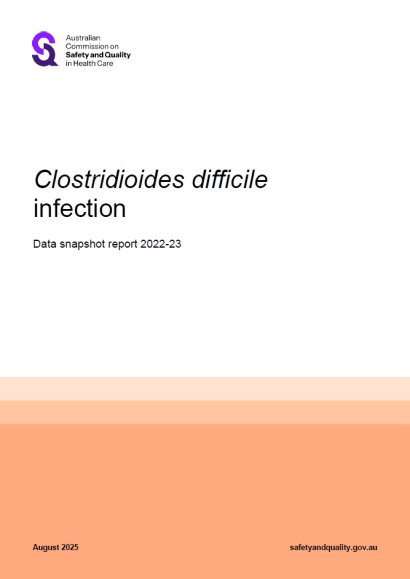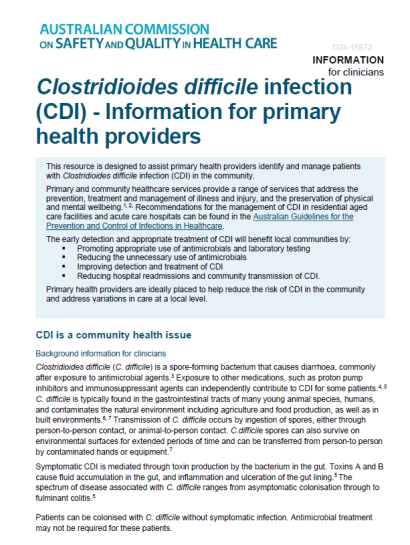Clostridioides difficile infection (CDI) in Australia
Clostridioides difficile infection (CDI) is a serious gastrointestinal disease, often caused by inappropriate antimicrobial use.
What is Clostridioides difficile?
Clostridioides difficile (also known as Clostridium difficile) is an anaerobic, spore-forming, gram-positive bacterium typically associated with gastrointestinal disease. It is common in the natural environment and in healthcare environments and can be spread between individuals through direct or indirect contact.
Clostridioides difficile infection (CDI) is often linked to prolonged and unnecessary use of antimicrobial therapy.
Monitoring the burden of CDI in Australian public hospitals
The Commission has monitored the national burden of Clostridioides difficile infection (CDI) in Australian public hospitals since 2016. This work has led to a better understanding of CDI acquisition in hospitals and in the community in Australia and has helped to inform the development of measures to prevent and limit disease spread.
Prevention and control of CDI
There are a number of strategies health service organisations can implement to prevent and control the transmission of CDI. Many of these strategies may also be applicable in the community and primary healthcare settings.
Information for primary health providers
More than 80% of hospital patients with CDI have symptoms before they get to hospital. Early testing and treatment in primary and community care are key interventions that will help improve patient outcomes, reduce the severity of disease, and prevent further spread of CDI in the community.



